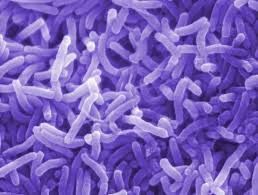According to the United Nations children’s agency (UNICEF), children make up about two out of every five cholera cases in Haiti, as the Caribbean nation continues to grapple with a deadly outbreak complicated by widespread violence and instability, Al Jazeera reported.
On Nov. 23, UNICEF stated that almost 40% of confirmed cholera cases were in children, and 90% of those cases were found in regions of the nation that were also the hardest affected by hunger and malnutrition.
Manuel Fontaine, director of UNICEF’s office of emergency programs said, “In Haiti right now, there is a triple threat to children’s lives – malnutrition, cholera, and armed violence. And sometimes all three together,” as he concluded a four-day visit to Haiti.
Last month, the UN’s World Food Programme (WFP) said nearly half of the Haitian population a record 4.7 million people were dealing with “acute hunger”.
Increased gang violence, which exploded after President Jovenel Moise was assassinated in Port-au-Prince last year, has made Haiti's response to cholera and hunger crises more difficult.
Water and energy shortages caused by a gang blockade of a fuel port in the nation's capital for many weeks earlier this year crippled Haiti's healthcare system and prompted experts to warn that the nation was facing a "time bomb for cholera."
Although the blockaded Varreux fuel terminal was retaken by Haitian authorities this month, allowing gas stations to reopen, a spokesman for Haiti's health ministry cautioned that this could result in more cholera cases because people would be allowed to move around again.
According to the most recent statistics from the Haitian public health authority, as of Monday, Nov. 21, Haiti had reported more than 11,600 suspected cholera cases and 949 confirmed infections since the outbreak started last month. At least 202 fatalities were recorded.
After a 2010 outbreak associated with United Nations forces resulted in about 10,000 deaths and more than 820,000 infections, Haiti has not reported a cholera case for more than three years.
Because of the connection between that outbreak and a sewage leak from a UN peacekeeping base, Haitians condemned the UN and began to distrust it. In 2016, the UN issued an apology for contributing to the epidemic.

© 2025 Latin Times. All rights reserved. Do not reproduce without permission.



